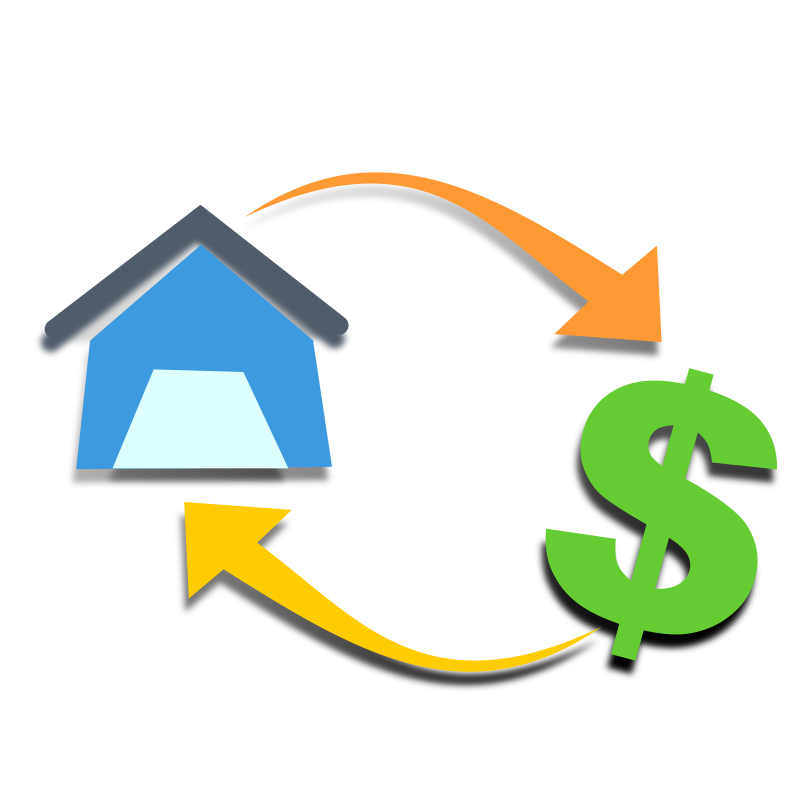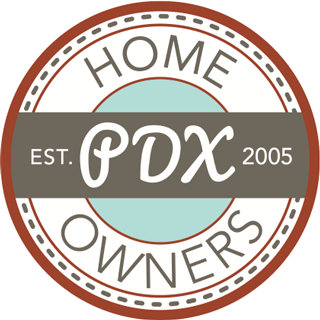
by Shannon McAlister | Mar 12, 2018 | Refinance
ADUs, mother-in-law units, granny flats – no matter what you call them – are a hot commodity in Portland. They come in all shapes and forms: basement renovations, garage conversions and free standing units. But they aren’t just to house your in-laws when they come to town anymore. Homeowners all over town are using them to offset their housing expenses and build long-term wealth. Whether you rent to long-term tenants or list it Airbnb-style, an ADU can turn your property into an income-producing asset. No two are alike, and many of them could be considered pieces of art. Designing one is fun, finding the financing for one is another story. Read on to learn how to finance ADUs in Portland.
Use the equity in your home
If you have equity available in your home, you’re half way there. Simply refinance your existing mortgage to the maximum limit (typically 80% of your appraised value) with a fixed rate mortgage. This locks in a low interest rate to fund your ADU construction. If you need a little extra cash, follow up with a Home Equity Line of Credit. However, HELOCs are typically variable rate loans and the monthly payment terms can be aggressive. It’s advisable to keep these just for any overage you may need.
What if I don’t have a lot of equity in my home?
Renovation loans are your answer. Renovation loans use the future value of your property – the value of your home AFTER you’ve built the ADU. An appraiser gives an opinion of that future value, and we work backwards from there to determine the equity available for construction. This is different than a cash out refinance where you’re given all the cash at close and are sent on your way to build your ADU. Renovation loans require that the funds are held in an escrow account. Those funds are used to pay your contractor on a draw basis as work is completed. This keeps everyone on track and ensures you end up with the ADU that your estimated future value was based on.
Changes in Portland are opening the door for even more ADUs
Until recently, renovation loans had one major drawback: they only allowed ADUs that were attached to the main house. Think of a basement conversion. If you didn’t have much equity and wanted to build a free-standing ADU, you had to find some other way to finance it. That changed recently. With the sky-high demand for these free-standing ADUs in Portland, we can now finance them on properties in the City of Portland.
Portland was one of the first cities to embrace ADUs as a sustainable housing solution. As a result, it is being used as a test market for financing these detached units. If successful, this program will likely be opened in other cities across the U.S.
Adding to the ADU movement, the City of Portland has waived the required System Development Charges (SDC) when building an ADU. The waiver is valid through July 31, 2018, provided that the ADU is constructed and receives final inspection and certification of occupancy by June 30, 2019.
Interested in ADUs? Bring your questions. Let’s see what we can build together!

by Shannon McAlister | Nov 28, 2017 | Uncategorized
The conforming loan limit is increasing to $453,100 in 2018, up from $424,100. This applies to all “Conventional” mortgages – loans that conform to Fannie Mae or Freddie Mac guidelines. Any loan amount over this mark is considered a Jumbo loan and is subject to a different set of underwriting and qualification guidelines.
The Housing and Economic Recovery Act (HERA) requires that the baseline conforming loan limit be adjusted each year for Fannie Mae and Freddie Mac to reflect the change in the average U.S. home price. The Federal Housing Finance Agency (FHFA) is responsible for setting this limit.
According to the National Association of Realtors, the median home price in Portland for Q3 2017 is $389,400, a 8.6% increase from their last report.

by Shannon McAlister | Feb 25, 2016 | Refinance
2016 has, so far, been unfriendly to stocks and is likely not finished heading into a bear market. With falling oil prices, China’s economic turmoil, and other global pressures, investors are flocking to the safety of mortgage bonds. This translates directly to lower mortgage rates. Bad news to good news!
With many scenarios dipping below the 4.0%* mark again, here are some good reasons to consider a refinance:
- Save money with a lower rate. If your rate is 4.25% or above, it’s a good time to look at what you might save over the short and long term.
- Leverage your equity for investment. Portland home appreciation is up which means you likely have added equity in your property. Many people are leveraging this to upgrade to a larger home or buy a rental property.
- Consolidate high interest debt. This isn’t my favorite reason to refinance, as you may be trading a short-term debt for a long-term payment, but I can help you do the math to determine if it makes sense.
- Get rid of your mortgage insurance. Mortgage insurance benefits you not! It’s simply the lender’s protection against foreclosure. If you have at least 20% equity in your property, you can remove the MI and save.
- Renovate your home. Build up, build down, remodel or build that Accessory Dwelling Unit (ADU) to rent out and create cash flow, simultaneously increasing the value of your property.

by Shannon McAlister | Mar 19, 2015 | Mortgage
Buying a home just got easier! A new Down Payment Assistance Program (DAP) for FHA loans means that borrowers only need .5% down. The DAP is a second mortgage, up to 3% of the sales price that can be used to meet the minimum down payment requirement and/or for closing costs. The DAP can be coupled with Portland’s MCC First Time Homebuyer Tax Credit. Certain eligibility requirements apply including income and debt limits.

by Shannon McAlister | Aug 12, 2014 | Mortgage, Rural
The annual fee for USDA loans will increase from 0.4% to 0.5% of the unpaid loan balance beginning October 1, 2014. There is no change to the upfront fee of 2% which may be financed.
USDA, or Section 502 loans are intended to help families purchase or refinance homes in rural areas. Zero down and no monthly mortgage insurance make these loans affordable and accessible. The property must be in an approved rural area and income limits apply. Find eligible rural areas here.





